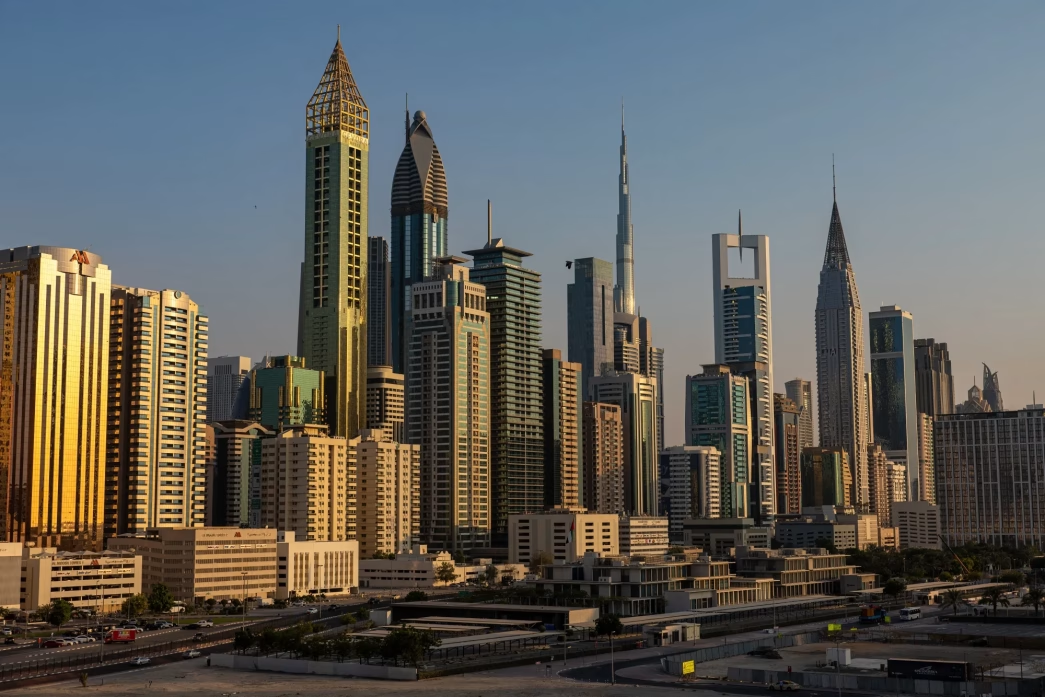Wealth migration, low taxes, and lifestyle transformation push Dubai to the top of global rankings for the ultra-rich.
Dubai has officially surpassed New York City as the world’s leading destination for the global elite, according to new rankings that measure the concentration and lifestyle preferences of the world’s wealthiest individuals. The data, compiled by leading global wealth intelligence firms, marks a historic shift in global affluence — one that cements the United Arab Emirates’ commercial capital as the epicenter of luxury, innovation, and ultra-high-net-worth migration.
This development is not just about prestige. It underscores a deeper transformation in the post-pandemic global economy — where mobility, tax efficiency, and political stability now outweigh the traditional dominance of Western financial hubs.
A Global Power Shift in Wealth
For decades, New York, London, and Hong Kong stood as the pillars of international wealth management. But the latest global wealth rankings show Dubai at the top of the list, with more millionaires and billionaires relocating to the city than anywhere else on Earth.
According to analysts, Dubai’s rise is driven by three core advantages:
- Tax-free living and investor-friendly regulations,
- Political and economic stability amid global uncertainty, and
- A lifestyle ecosystem tailored for international entrepreneurs, investors, and families.
The emirate’s population of millionaires surged more than 75% over the past decade, a figure that dwarfs most Western cities struggling with slow growth and regulatory pressures. In 2025 alone, Dubai is expected to attract over 6,700 new millionaires, while New York and London are witnessing net outflows of wealth due to high taxes, crime concerns, and political polarization.
Dubai’s Winning Formula
Dubai’s success is no accident — it’s the result of a carefully engineered economic model that blends business opportunity with lifestyle appeal.
1. Tax Advantages:
There is no personal income tax, no capital gains tax, and no inheritance tax — a critical draw for global investors. Corporate tax remains minimal and targeted, ensuring the UAE remains one of the most competitive jurisdictions for both startups and multinational enterprises.
2. Ease of Doing Business:
The UAE’s pro-business policies, coupled with 100% foreign ownership laws and a rapidly expanding free zone ecosystem, have made it seamless for entrepreneurs to establish global operations.
3. Lifestyle and Connectivity:
Dubai’s reputation as a safe, cosmopolitan hub continues to attract high-net-worth families. With world-class healthcare, education, luxury real estate, and connectivity via Emirates Airline, the city has redefined the concept of global residency.
4. Innovation and AI Economy:
The government’s push toward AI-driven economic diversification and smart city infrastructure is positioning Dubai as a future capital for digital finance, blockchain, and sustainability tech.
The Decline of Western Hubs
While Dubai ascends, traditional wealth centers like New York, London, and Los Angeles face mounting headwinds.
- New York, long the benchmark for global finance, has seen wealth flight as high-net-worth individuals relocate to lower-tax regions or offshore jurisdictions.
- London, once the heart of European finance, continues to grapple with Brexit aftershocks, housing shortages, and declining competitiveness.
- Hong Kong, meanwhile, has been hampered by political instability and tighter oversight from Beijing, leading to an exodus of both talent and capital.
In contrast, Dubai’s ability to remain neutral in global geopolitics, combined with its role as a bridge between East and West, has allowed it to benefit from the realignment of global wealth flows.
A New Class of Residents
The influx to Dubai is no longer limited to oil executives and real estate moguls. The new wave includes tech founders, hedge fund managers, crypto entrepreneurs, and family offices seeking secure bases for wealth preservation.
Real estate has become a central magnet for these inflows. Property prices in key areas like Palm Jumeirah, Downtown Dubai, and Dubai Marina have surged more than 25% year-on-year, with luxury villas and penthouses routinely fetching prices exceeding $50 million.
Simultaneously, Dubai’s golden visa program, which grants long-term residency to investors, innovators, and skilled professionals, has created a sense of permanence that previous expatriate hubs lacked.
Global Elite Are Choosing Stability Over Tradition
For many in the top 0.1%, the choice is now between cities that offer financial opportunity and freedom versus those bogged down by regulation and political risk. Dubai’s leadership has capitalized on this paradigm shift by ensuring predictable governance, safety, and infrastructure reliability.
Analysts note that climate resilience, energy policy, and technological leadership have also made the city a long-term bet for the world’s wealthiest. While other cities talk about building the “city of the future,” Dubai is living it — from autonomous transportation systems to AI governance tools and clean energy megaprojects like the Mohammed bin Rashid Al Maktoum Solar Park.
Challenges Ahead
Despite its triumph, Dubai faces challenges as it transitions from rapid expansion to sustainable growth. Maintaining housing affordability, managing environmental pressures, and ensuring social balance amid rising inequality will test policymakers.
There’s also the question of how the emirate can retain its new residents long term, as global mobility makes relocation easier than ever. Still, Dubai’s evolving legal and cultural frameworks suggest the leadership is adapting faster than its rivals.
Conclusion
Dubai’s ascent as the world’s top destination for the global elite is more than just a ranking — it’s a sign of a shifting global order. The concentration of wealth, talent, and innovation is no longer confined to the West.
With billions in investment flowing in, a booming property market, and a forward-looking governance model, Dubai has positioned itself as the capital of 21st-century global capitalism — a city where ambition, security, and innovation converge under a skyline that continues to redefine possibility.

















